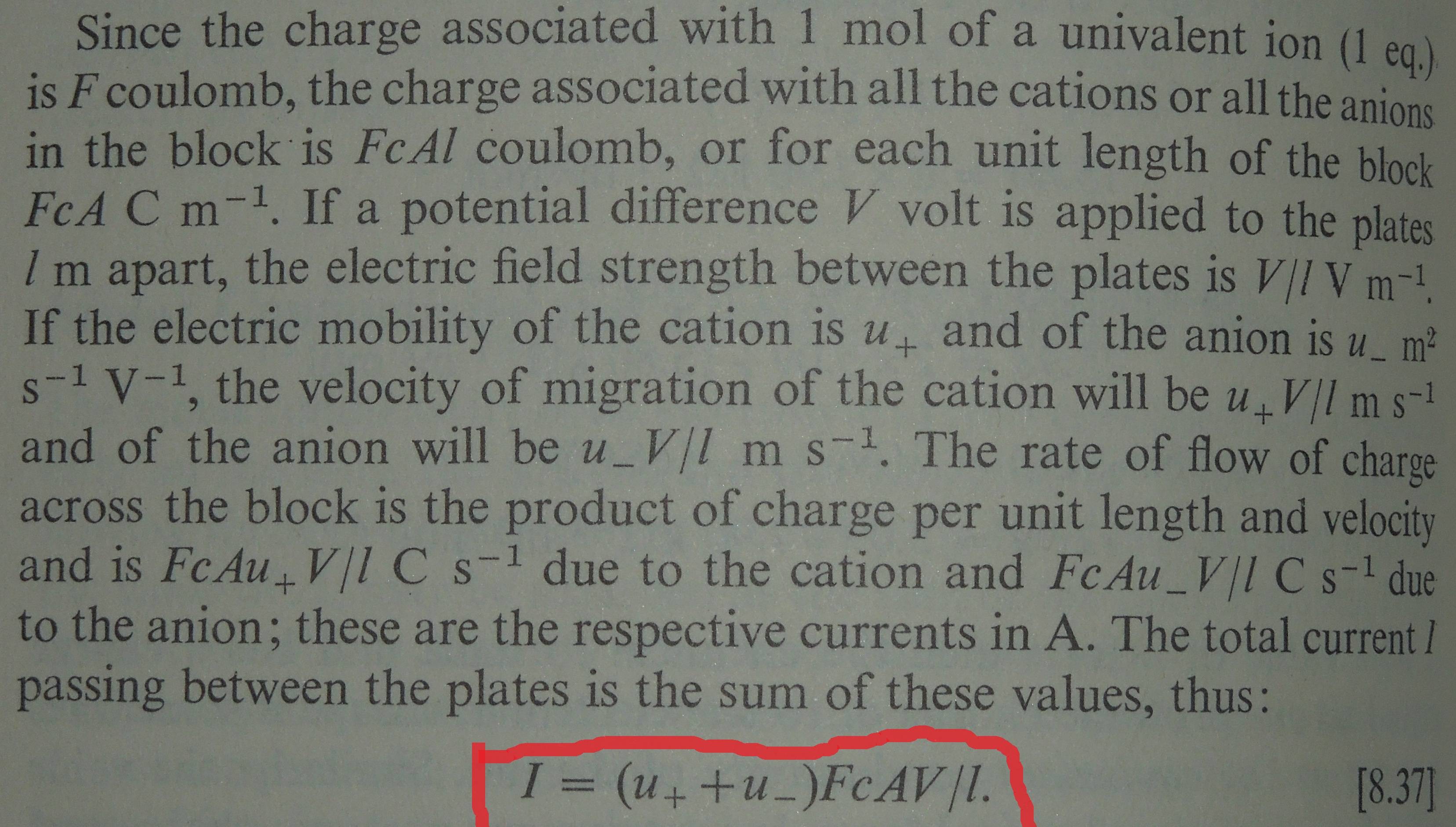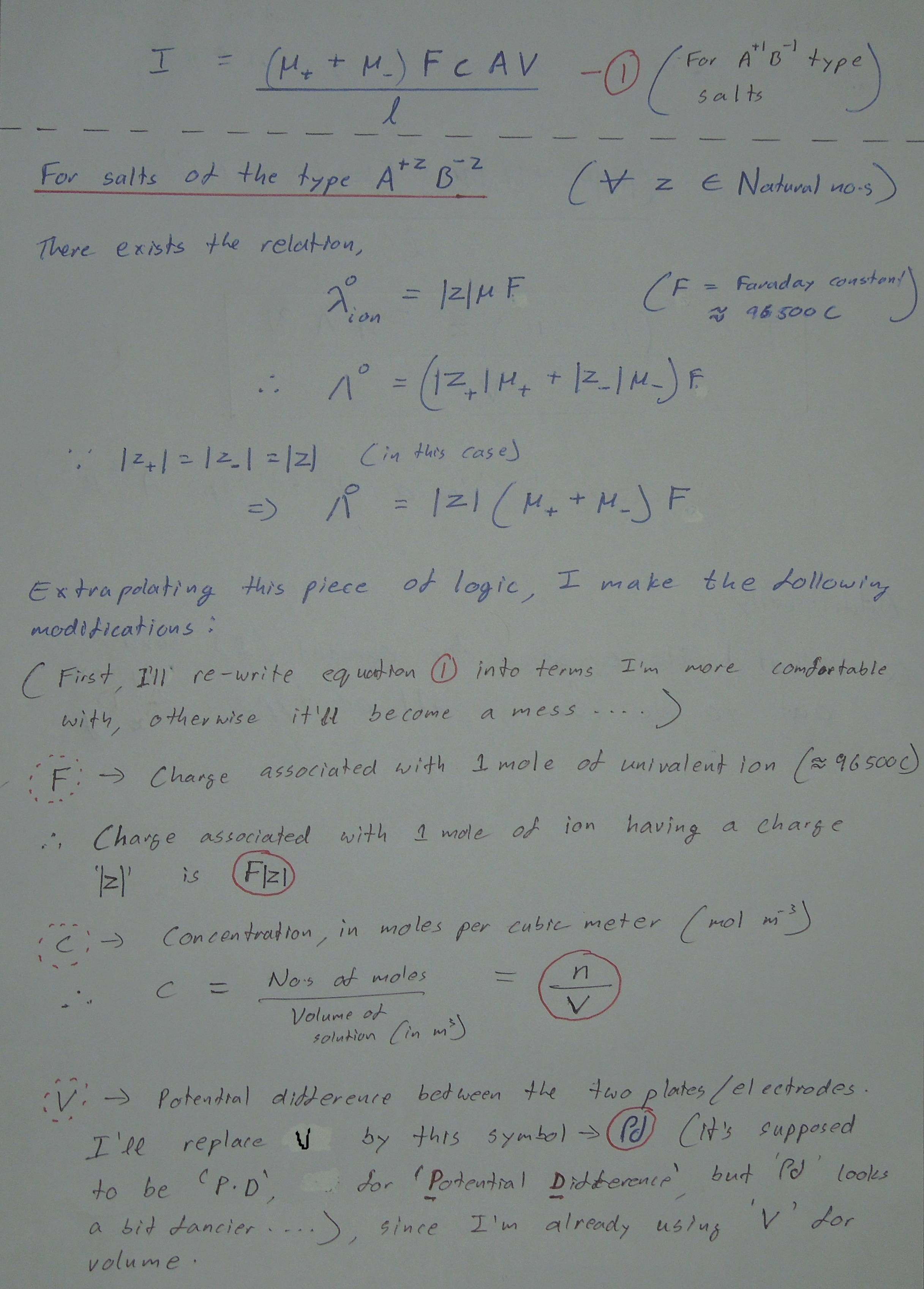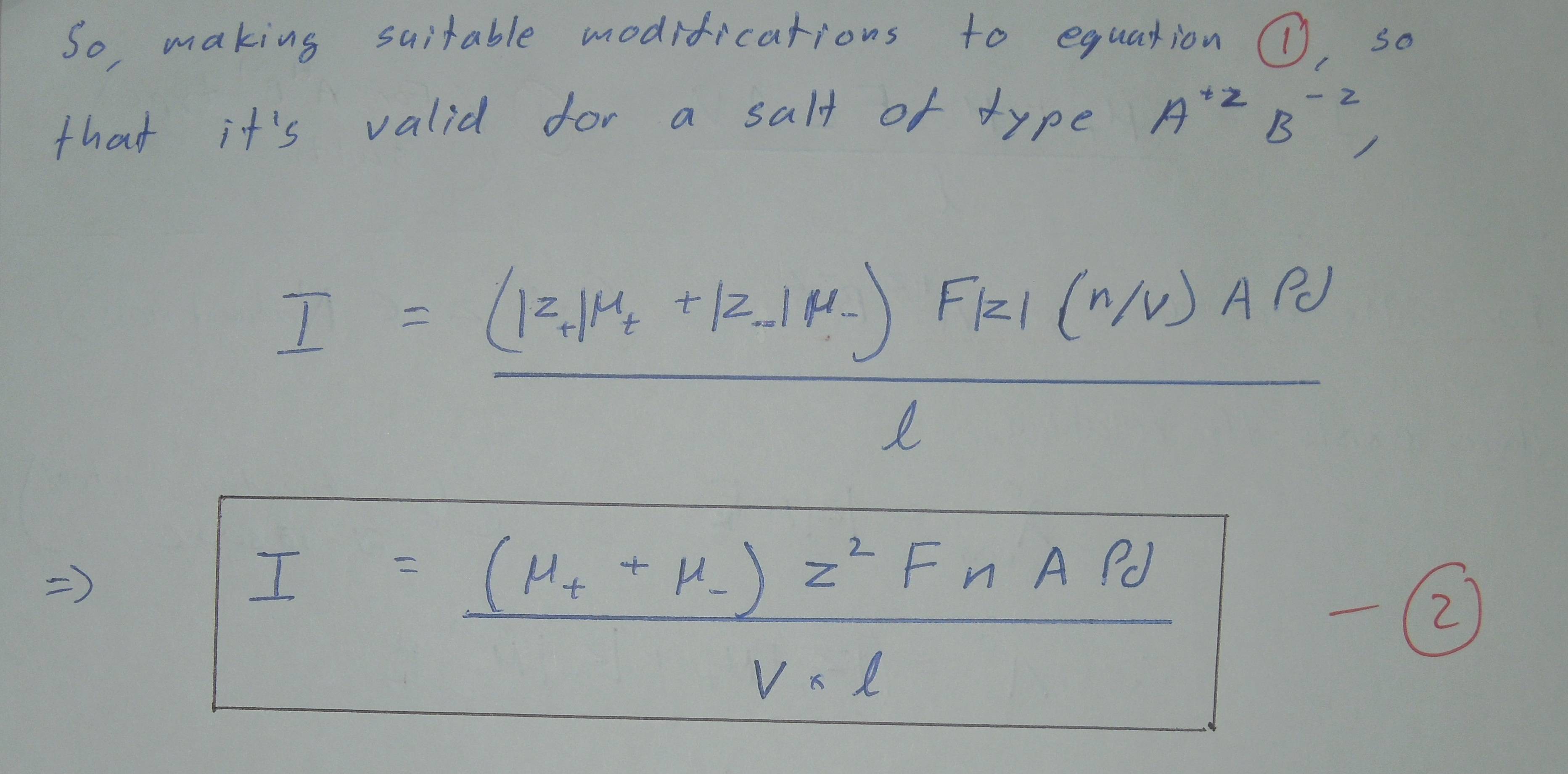High-schooler here reading up on electrochemistry.....
I came across this equation (and its derivation) in the book Physical Chemistry, by Wallwork and Grant:
Now the thing is, the equation is valid for 'uni-univalent' electrolytes (like KCl). But I want a more....'versatile' formula.
So I attempted to modify that equation to suit electrolytes of the type AB (i.e- magnitude of charge on a formula unit cation is equal to that of the charge on a formula unit anion).
I wrote down the whole thing (my formatting skills are terrible, so to type it out would be a HUGE pain in the neck), pardon the handwriting, I hope it's legible enough....
As for that last question.....I was wondering if the equation could be made even more 'versatile' 3:)
( @getafix don't think of me as clingy but...I'm counting on you for this one too! )






